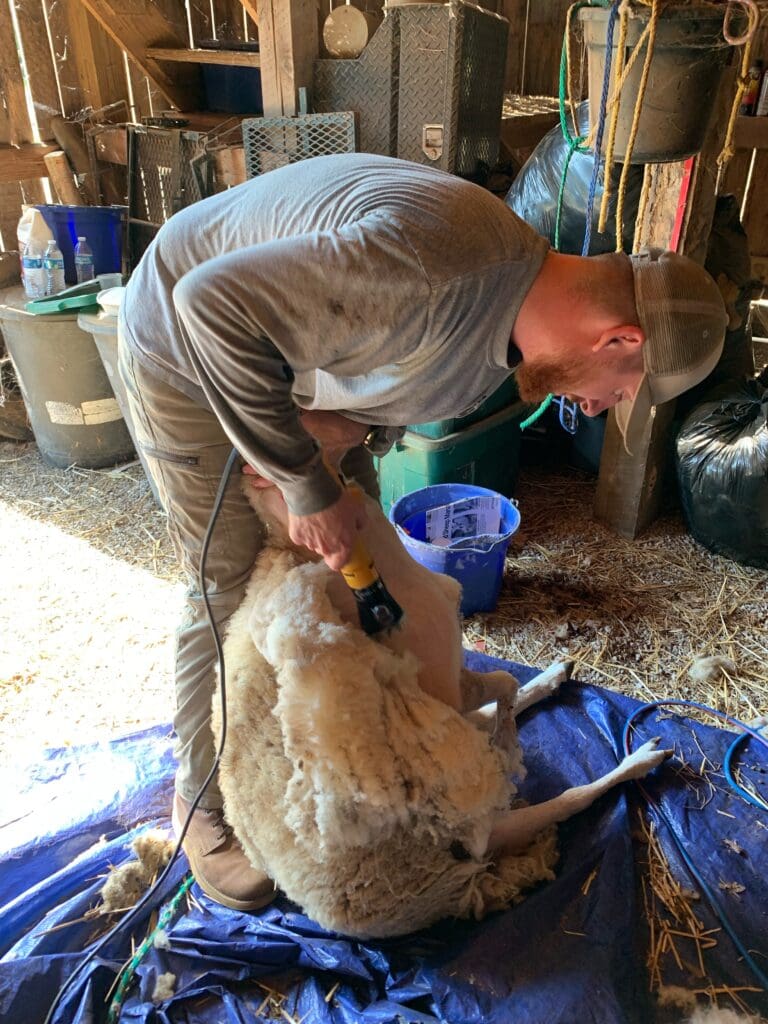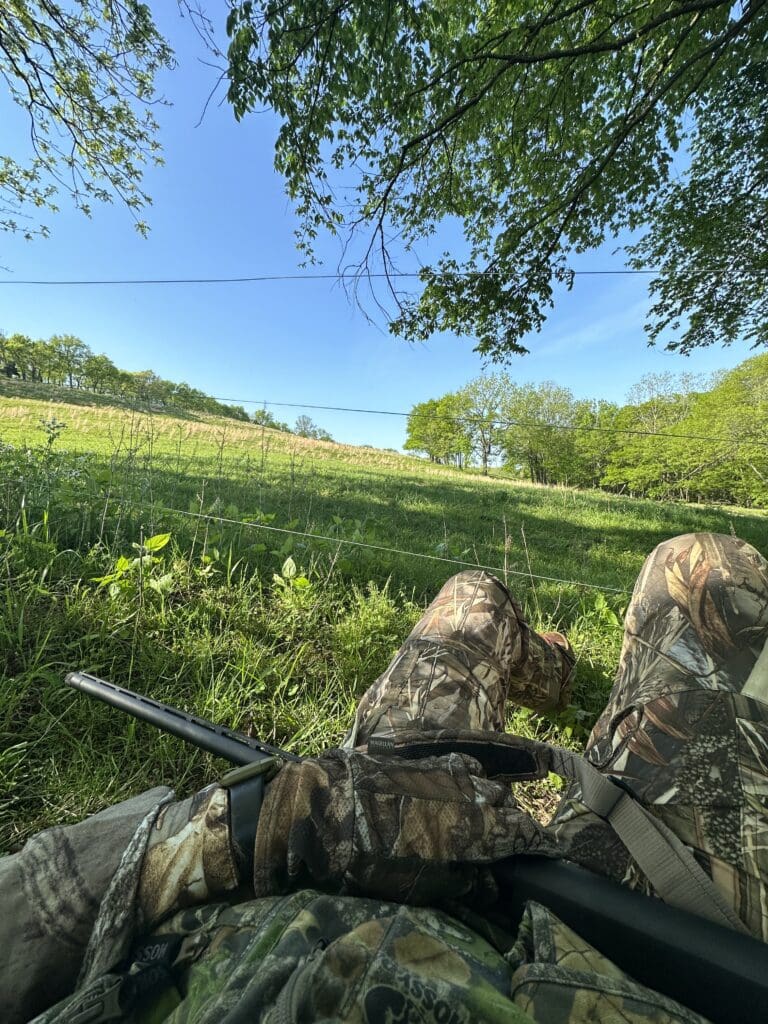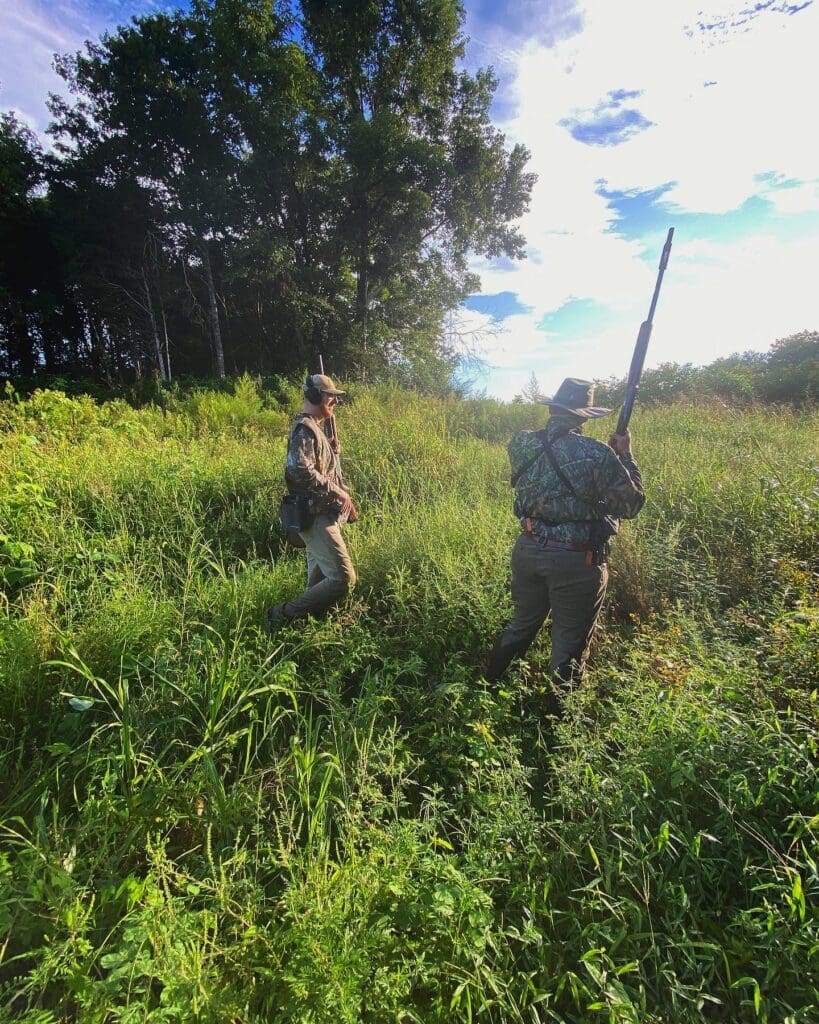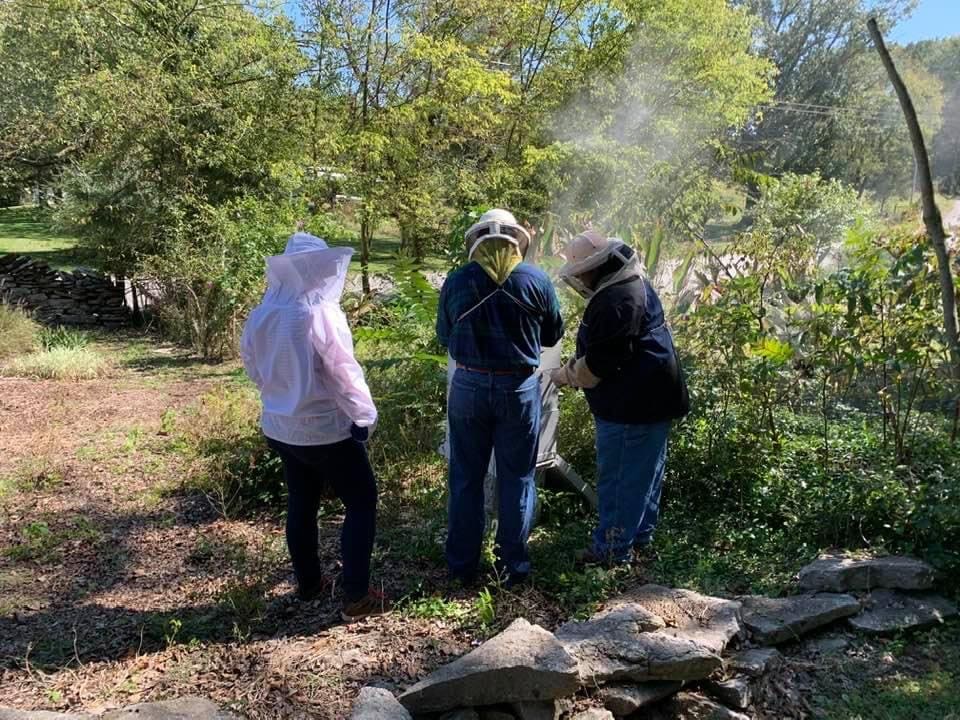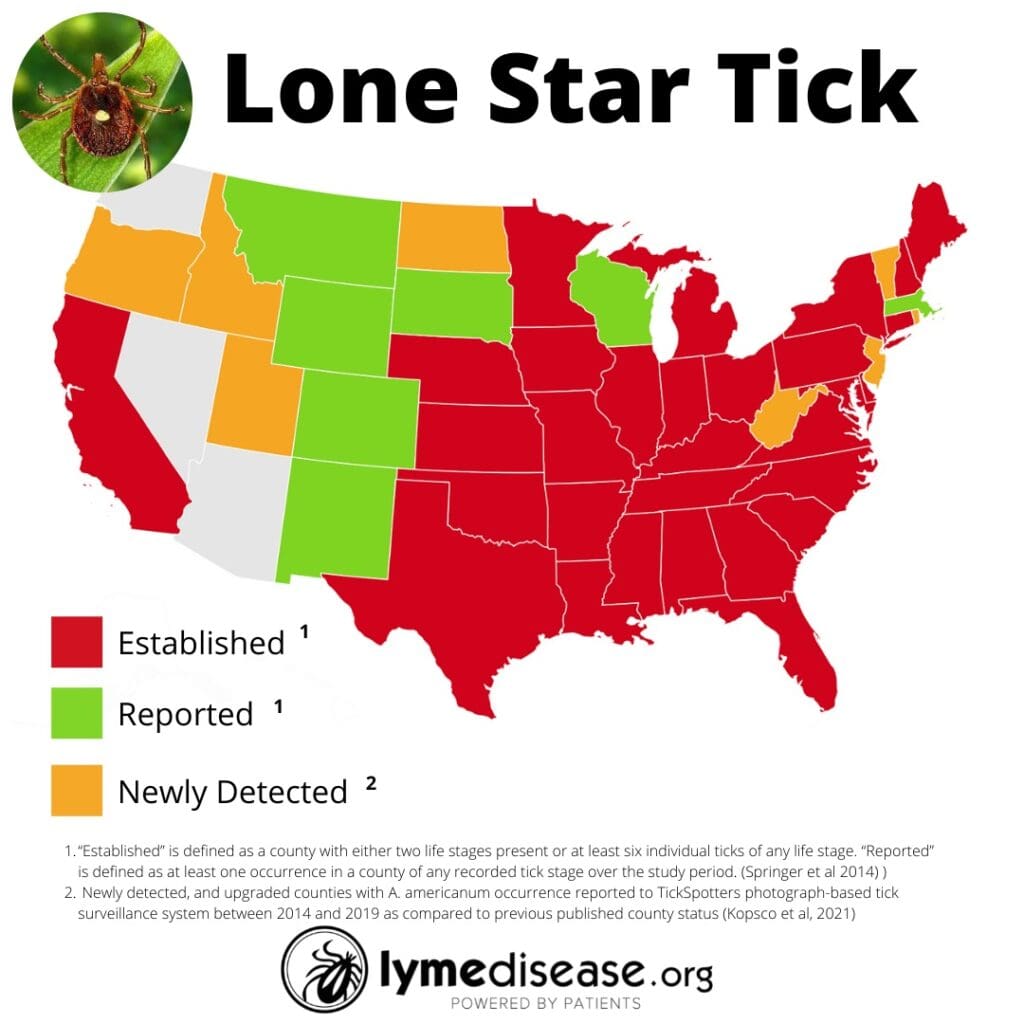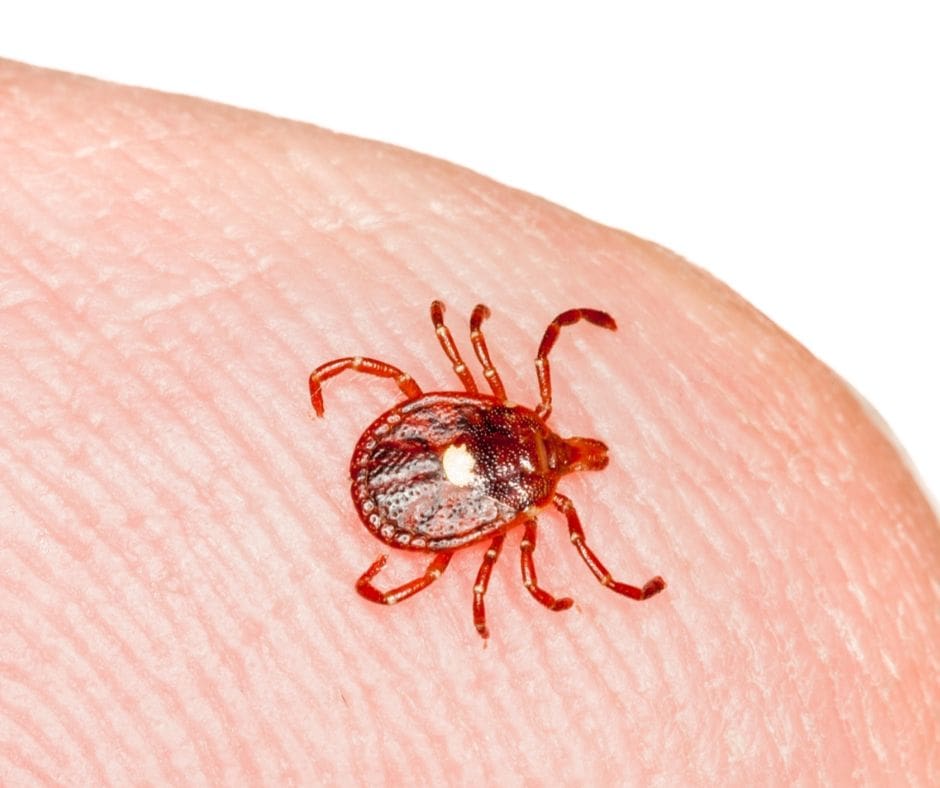How a Tick Bite Changed My Life
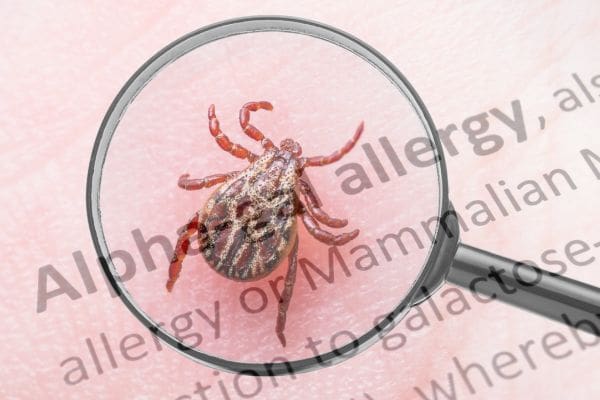
My whole life changed the day I found out I had alpha-gal syndrome (AGS). Galactose-alpha-1, 3-galactose, or Alpha-Gal, is a severe and life-threatening allergic condition. After consuming mammal meat or meat products, the symptoms can be severe, and your exposure can be closer to home than you think. One bite from the Lone Star tick could take away all your favorite red meat dishes and delicacies.
The Lone Star
The Lone Star tick (Amblyomma americanum) is a formidable arachnid native to the southeastern region of the United States but has been expanding its range in recent years. This tick is named after the distinct white spot on the back of adult females shaped like the state of Texas. Known for their aggressive behavior, Lone Star ticks can transmit several diseases. If you’re ever in an area where Lone Star ticks are prevalent, taking extra precautions to avoid bites and checking yourself for ticks after spending time outdoors is essential. Alpha Gal Syndrome can be problematic for many people, as coming in contact with ticks is expected when spending time in natural environments. This results in a higher percentage chance of exposure to a tick, which could transfer AGS. This map from Lymedisease.org shows the population and spread of the Lone Star tick across North America.
My Life Before Alpha-Gal
My family has lived and moved all over the country. I have lived in the Deep South and the Pacific Northwest. But I can remember the day we moved from the panhandle of Idaho to the rolling hills of Middle Tennessee. I had never seen so many trees, such untamed wilderness! I was a younger kid when I moved to Tennessee. I have always loved my time in the outdoors. It could be climbing hardwood trees, wading through hip-high grass to get to bass fishing ponds, or hours of yard work. I could not tell you the number of nights my mom would ring the bell on the back porch to bring me inside after a long day. I could not get enough time in the woods. People ask when I got bit by a tick. My answer is no telling; I remember a few dozen.
The interesting thing about Alpha-Gal was that it did not occur immediately. It can sometimes take years after the bite and exposure until you see symptoms or have an allergic reaction. I remember my older sister getting sick; the doctors and medical professionals were perplexed. She finally went to an allergist who tested her for various things. The tests came back positive for cats, dogs, and milk. It would have made sense if we knew it was an allergy to mammals. If my sister had not gotten sick before me and gone through specialists and testing, I probably would have struggled for years to manage AGS. She was able to be diagnosed with Alpha-Gal Syndrome.
Growing up on a farm, I was responsible for early morning and late night chores and caring for the animals. Back then, the Bob White Quail was still an ordinary sound during the last minutes of sunlight. Growing up on a farm taught me a lot: how to work hard, appreciate where my food came from, and care for what you are responsible for.
Eating local was one of my favorite aspects of being raised on a farm. As a young man, I raised chickens, sheep, and cattle through 4-H. My mother always told me the eggs from our free-range chickens would have rich, yellow yolks and make the pancake batter look more like cornbread. Nothing beats farm-raised meat. Food has been a central part of my life.
My family used to host dinners, cooking entire meals with only ingredients from the garden and raised on the farm. These were our farm-to-table meals. I was getting to show and share the harvest from the season with others and educate them on the value of agricultural practices. But all this changed when I found out I had Alpha-Gal.
My First Reaction
I had my first severe allergic reaction when I was a freshman in college. I had just finished working on a catering event for the university. I sat down at the table with the executive chef to eat a perfectly cooked beef short rib. That would be the last red meat I ate for nearly a decade. My entire lifestyle would change after this night. The allergic reaction I had was unlike anything I had ever experienced. If you have ever felt like you are dying, you can relate.
My reactions, and most with AGS, are not immediate like other allergy reactions. These usually take 2-6 hours before any symptoms start to occur. Various factors can cause difficulties in getting a proper diagnosis or being misdiagnosed. A delayed reaction can play a significant part in this. Since it was a late catering event, my reaction was so severe it woke me up out of my sleep. Suddenly, fever, hives, diarrhea, vomiting, the whole nine yards. Since my sister was diagnosed with AGS years prior, she recognized what was happening and was able to get me Benadryl and make sure I was okay. I could have had a much more severe outcome.
So, this began my culinary journey only to eat meat that swims or flies. My new reality was reading ingredient labels, reacting to cross-contamination, and attending BBQ cookouts to eat a lettuce, tomato, onion cheese sandwich. I would not eat any more steak, bacon, ham, sausage, or red meat. Turkey bacon and chicken breasts would be my new regular.
My warning to all hunters, anglers, and outdoor enthusiasts: tick bites can be much worse than some itchy bug bites. Tick bites can change your entire life. Being adequately prepared to go out, knowing what a potentially infested habitat can look like, and knowing what to do when you complete outdoor activities are all important ways to help prevent tick bites.
Ways to Prevent Tick Bites
- 1. Dress appropriately: Wear long-sleeved shirts, long pants, and closed-toe shoes. Tuck your pants into your socks or boots to prevent ticks from crawling up your legs.
- 2. Use insect repellent: Apply an insect repellent that contains at least 20% Deet to exposed skin and clothing. Additional products like Sawyer permethrin or Tickless Hunter can be an excellent aid to stopping exposures before they happen.
- 3. Check for ticks regularly: After spending time outdoors, check yourself, your children, and your pets for ticks. Pay close attention to warm and moist areas such as armpits, groin, and scalp.
- 4. Avoid tick-infested areas: To prevent ticks, avoid areas with high grass, leaf litter, and brush since these are common places where ticks thrive.
- 5. Use tick control products: If moving through potentially infested areas, use tick control products on pets, such as collars, sprays, shampoos, and tick repellents on clothing and gear.
- 6. Remove ticks promptly: If you find a tick attached to your skin, remove it with tweezers. Grasp the tick close to the skin and pull it straight out.
Reminder to Outdoorsmen
Remember, prevention is critical regarding tick bites and tick-borne diseases. Taking the necessary precautions can help you enjoy the great outdoors without the risk of tick bites.
When I engage in outdoor activities, such as yard work or hunting for spring turkeys, I always take a few extra minutes to apply insect repellent. Taking preventative measures to avoid something that could affect my life in the long run is better.
My love for the outdoors and farm-to-table meals is something that I cherish. However, after being diagnosed with AGS, everything changed. I had to learn about my new reality and how to adapt. However, after years of struggling with reactions and symptoms, I found a treatment that worked for me. In my next article, I will share my life journey after exposure to Alpha-Gal and finding treatment. Stay tuned to learn about the treatment options available and how they can improve the quality of life for those with AGS.

